
Towtruck Guy: Where’s your lug wrench?
Me: Back in my office.
TG: What’s it doing there?
Me: I needed an ice crusher.
Viewing Blog: PV Lundqvist, Most Recent at Top
Results 51 - 69 of 69
Who thought the world needed another pig book? Oh, yeah. me.Statistics for PV Lundqvist
Number of Readers that added this blog to their MyJacketFlap: 1
Blog: PV Lundqvist (Login to Add to MyJacketFlap)
JacketFlap tags: fail, Add a tag
Blog: PV Lundqvist (Login to Add to MyJacketFlap)
JacketFlap tags: Add a tag
Blog: PV Lundqvist (Login to Add to MyJacketFlap)
JacketFlap tags: Add a tag
NOT JUST FOR BREAKFAST ANYMORE
Rating: 5/5
My 4 year old son absolutely adores me reading to him, and when he saw the cover of this book, he demanded that I read it to him right away. Both of us really enjoyed the story!
He loved it because it was story of a pig. I loved it for the lessons that I've seen him learn from it, even though we only finished it a few days ago. He was deepened by my teachings of self-esteem and standing up for not only what you believe in, but for what is right. We both enjoyed the story of a young boy given a unique birthday present/pet, and how sometimes you get the things you didn't even know you needed until you received it. The story flowed so well, I didn't feel any thing was lacking in how one person got from one place to another, and the quest that our young hero took was very riveting. The time spent in the rain storm in a log was worthy of college literature class discussions on symbolism. And while I read into the book more than my son did, he loved it too. He enjoyed growing with the characters and the pig.
Now, please get him off my back about why we can't have a pet pig in our apartment!
PJ Culley
[PV: I wrote back to tell PJ's son that pigs aren't happy unless they can be outside to root and such. But I suspect that once pig-mania takes over, there's no talking a kid out of it. I also asked her to write a review of the book and post it wherever she felt comfortable.
As an aside, it's been hard to get the word out about NJFBA, I'm not published by a big publisher, no marketing money to speak of, and the major print reviewers automatically excluded my book from consideration. Very frustrating. Yet, it's letters like this that make writing the book all worth it.] Add a Comment
Blog: PV Lundqvist (Login to Add to MyJacketFlap)
JacketFlap tags: gummy bear, Add a tag
Blog: PV Lundqvist (Login to Add to MyJacketFlap)
JacketFlap tags: father daughter, Add a tag

Kinda catches your attention, doesn't it? Even though nobody is inside. Now imagine that your thirteen year old daughter is wearing this two-piece, sluicing down the ole slip and slide. Boys galore.
Yeah.
We have to have that talk, Sparkly.
Blog: PV Lundqvist (Login to Add to MyJacketFlap)
JacketFlap tags: Kids, introduction, Add a tag
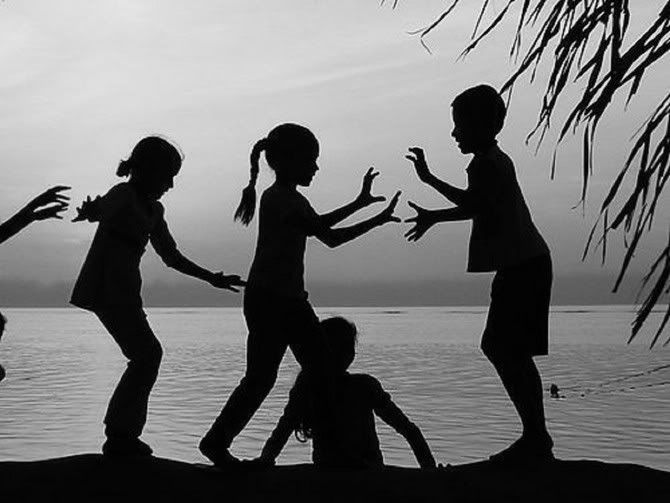
Dozens of times, I've started typing a vignette about one of my kids...and I stop. The thought that goes through my head? I haven't introduced them, nobody knows who they are, blah blah, blah.
So I'll fix that. Now.
I have three children, and I'll address them by carefully chosen nom de 'nets. That I just made up this second.
My thirteen year old daughter, Sparkly.

She'd totally wear these.
Why Sparkly and not Sparkles? No stripper names for the children! That's a rule. It's fascinating to me to see my face (my mom's face) play out on an opposite gender child. Hmm. This will require a post all it's own.
A typical conversation I've had with Sparkly:
Sparkly: Papa, superman is flying low.
Papa: Bad news, so is supergirl.
Sometimes, it's like having a conversation in my head, we're so similar.
My ten year old son, Dusty.

Imagine a hundred pounds lighter, and a dirty uniform.
He wants to be Dustin Pedroia like I want to be Scott Westerfeld. Really. Badly. He also defines hero worship for me. I can do no wrong in his eyes. He makes me want to be that person he sees.
A typical conversation I've had with Dusty.
Dusty: Papa, coach says I need a cup for little league. What's a cup?
Papa: Gets awfully hot out there, in the outfield...
Mama: PV!
Yeah, I get yelled at. A lot. I misbehave more than the kids.
My (almost) one year old, Gummybear.
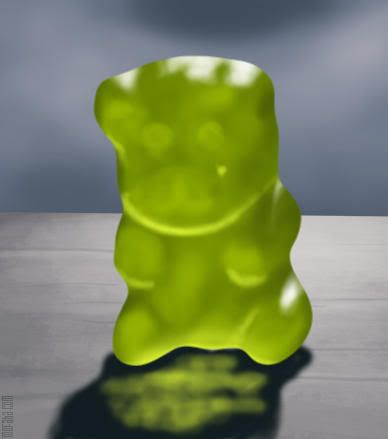
Actual size.
Can't walk, can't talk, but boy how happy we are when he sleeps. The boy has been afflicted by low aspiration syndrome.
Typical conversation I've had with Gummybear.
Papa: How's the little baby business today?
Gummybear: Um, gai!
He's allergic to everything except dirt. You try keeping weight on someone who can't eat dairy, wheat, or fruit.
That's the brood. From now on I'm going to be blogging about my kids, so keep this post handy. Or I just might leave a link up on the side bar. You never know. Add a Comment
Blog: PV Lundqvist (Login to Add to MyJacketFlap)
JacketFlap tags: publishing, middle grade, Add a tag

Today's kids use language that you can't find in most middle grade books. In fact, just try getting a novel into a kid's book club with realistic language. Just ask author Lauren Myracle. And don't think I'm talking about the big seven you can't say on television. I'm talking 'geez' and 'sucks, in addition to 'crap'. Am I advocating wholesale potty mouth in books? No. What I'm addressing here is conveying authenticity in fiction, not shock value. Relating to kids in their own words.
You're probably thinking that you've read far worse. Yes, and it probably was in a young adult book: something for teens and up. Even then, a publisher risks losing sales to younger teens and middle schoolers by allowing realistic language. Remember, books for this audience are still mainly bought by parents. And they don't want to buy that crap.
Two books I've read recently get around this prohibition. MAZE RUNNER takes every curse word you can imagine and invents a counterpart. So instead of crap you have klunk. There's also slinthead and shuckface. Yeah, aren't you glad they didn't curse?
LEVIATHAN accomplishes the same thing, but because it's counter factual historical fiction, well, who's to say they didn't speak differently in this alternate universe?
Both books are creative in expressing emotion in dialogue (hello, that's what swears are for) without waking the censors. Still, it's a dodge. Kids will notice the difference. And, one day, nine-year-olds will be able to order books like they order up a video on Youtube. You watch.
So as much as I don't want kids cussing like longshoremen, reading a book about dystopian death camps and having the protagonist say 'oh crud', just doesn't cut it. Because, in the twenty-first century, kid-readers won't have to put up with that crap.
Blog: PV Lundqvist (Login to Add to MyJacketFlap)
JacketFlap tags: Add a tag
Jandy, of Jandysbooks.com, reviewed my book. "P.V. Lundqvist has written a wonderful book for the younger middle school aged boy."
Check it out.
Blog: PV Lundqvist (Login to Add to MyJacketFlap)
JacketFlap tags: Add a tag
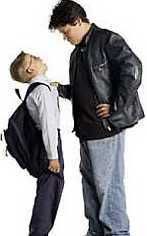
Ever been afraid to go to school? I have.
My bully's name was Dipper, and he liked to strike in the locker room after gym class. Thinking back, it was minor stuff: comments, throwing towels into running showers—that sort of thing. Back then, it seemed so huge. Affected my whole day. Week, even. I would ask myself, what was I going to do? Tell a teacher? That would be 'telling'. Fight him? He never laid a hand on me.
How I wish I could go back to tell my 12 year old self what to do.
Teaching our kids how to deal with bullies, whether the push-you-around kind, or the get-in-your-head variety, is more important than ever. Now a school yard taunt can evolve into a viral video on Youtube. What a bully says can now go around the world.
Oh, and what ever happened to my bully? Dipper? He's a taxidermist now. Yeah.... And, boy, has he ever shrunk. One day I should tell him he inspired the bully I put in my book. Maybe the next time I need a toilet bowl shampoo.
Blog: PV Lundqvist (Login to Add to MyJacketFlap)
JacketFlap tags: novel, ebook, Launch, Add a tag

Publishing a book is a little like your kid's first day at school. You want to hover, put bumpers on them, be there to dry their tears. In a word: worry. Yet, like the old saw about ships being safest in the harbor but that's not what they are made for, children need to make their own way in the world.
Gulp.
And so I announce the ebook launch of my novel NOT JUST FOR BREAKFAST ANYMORE: now available at Amazon and Smashwords. In the next couple of weeks, Barnes & Noble and Sony.
Books are always safest in your head, but that is not what they're written for. So off you go, little book. Remember your mittens and lunch bag.
Daddy will be here when you return.
Blog: PV Lundqvist (Login to Add to MyJacketFlap)
JacketFlap tags: middle grade, book cover, Add a tag

Final cover art for my middle grade novel, NOT JUST FOR BREAKFAST ANYMORE. Coming out in print on February 1, 2010. As an ebook, much sooner. Details to follow.
Blog: PV Lundqvist (Login to Add to MyJacketFlap)
JacketFlap tags: Add a tag
I’ve been obsessing about green. As in which color green for my book cover? There’s this real trendy green, you see it everywhere. Magazines, candy wrappers, web pages, race cars...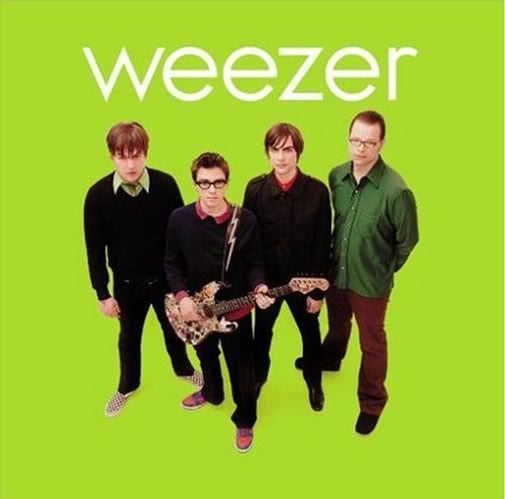
Even rock groups.
If a book is green, chances are it is this green. So when my thirteen-year-old daughter asked me what color to paint her room, I suggested:
She loved it! I told her that was the color I was thinking for the cover of my book.
She: Isn’t yours about a boy who tries out for baseball?
Me: Yes.
She: What about grass-green?
Even better.
Blog: PV Lundqvist (Login to Add to MyJacketFlap)
JacketFlap tags: Add a tag

Start today and be done by the end of November, that's the challenge I gave to my nine-year-old son. Everything is more fun if accompanied by words like challenge. Adventure too.
When I was in middle school, my teacher pressed her personal copy of The Hobbit into my hands. She said it would be a challenge. She made me promise to 'give it fifty pages.' It was a struggle, but I did it, and I remember on page 51 being hooked. I went on to read the Lord of the Rings, breathlessly reading to find out how it all ended.
I gave my boy the same advice: Give it fifty. Race you there. Last one to Mordor is a rotten Nazgul.
Blog: PV Lundqvist (Login to Add to MyJacketFlap)
JacketFlap tags: publishing, Add a tag
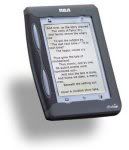
Did you know that the first typeface looked like italics? The first printed pages were made to look just like handwriting. Like calling a car a horseless carriage, innovation seems to start out like an emulation of the past. So when I tried to figure out why ebooks are so expensive, I first thought that publishers were treating them just the same as print books. That they were unable to let the buggy whip factory close. Are publishers just not getting it?
In favor of That Argument
Often ebooks are priced the same as their print counterparts. Yet with ebooks there are no printing costs, or shipping, so what's the deal? Well, it could be they don't want competition with their real business: dead tree byproducts. Certainly their copy protection schemes suggest just that. While I can pass around my copy of The Hobbit like a shared tankard at the Ivy Bush inn, I can't email a friend an ebook. Or print it out in some cases. My own paid-for copy! It's like publishers are crippling their own products. Have you noticed when you read ebook offerings online that about one in ten is missing an uploaded book cover? Call me skeptical, but ebooks seem to be the unwanted stepchild of the publishing world.
Against That Argument
Take Sarah Palin's book Going Rogue. It's only available as a hardcover, not as an ebook. At first this seems like another point in favor of cluelessness. However, consider the margins: Rogue is selling for thirty dollars (list); if at a fifty percent discount, minus, say, a hypothetical $5 print cost, HarperCollins could be looking at ten dollars of profit a book. Using Amazon as a measure, ebooks' price point appears to be ten dollars. Then, isn't it reasonable to assume that the money HC makes would be less that that? Perhaps half?
My question is: Would you sell dead trees over ones and zeros at twice the gain? You betcha'. What I believe is that publishers are pushing print books because they can make a tidier profit out of them.
How do I Feel About This?
As a reader, I feel taken advantage of. I could have many more books on my iPhone, just like I own plenty of apps. Most apps are free or a dollar; five bucks is the outlier, and what I receive from those is great utility or dozens of hours of entertainment. Somebody is making money off of apps, you can count on it. Don't tell me that software writing is less work than book writing. I don't buy it.
As a writer, do I think making more royalties on a print book are a good thing? Sure, but according to my partner pub contract, the ebook edition will be forty percent off of the print price — yet the royalty to me is higher! Why? No printing and transportation costs. Would I rather sell fewer books at a higher margin? Not really. I want my book in more hands not fewer. Whose interests does this serve? The publisher, not the author. Rooted to an old model.
What this whole argument presupposes is that there has to be a good reason for pricing. Clearly, Houghton Mifflin can charge whatever they want for Lord of the Rings, for example. Then again, nobody has to buy it. What this topic does remind me of is what the record industry went through with Napster. Record execs arbitrarily set a price for music, and consumers had to buy it bundled (a whole CD) instead of getting only what they wanted (a single). And the music became copy protected. Stealing music became easier than buying it. And we all know what happened to the record industry since then.
So my conclusion is not that publishers 'aren't getting it', but that they are trying to preserve their historical margins. If so, all I have to ask them is this: Can Bookster be far behind?
Blog: PV Lundqvist (Login to Add to MyJacketFlap)
JacketFlap tags: Add a tag
In my family, when baby G makes an 'o' with his lips, we joke that he's making 'bottle face.' Insert nipple here. We laugh. When my other son M sat in my lap and pursed his lips, I didn't. He's nine.
It has to be hard on him: he's not the baby anymore. No longer the only boy. Where does he fit in?
So far, we've avoided any real rivalry. The way the baby looks adoringly at M, he might as well have jellybeans spilling out of his ears. In turn, he's so good with the baby; he makes a great big brother. But this lap incident leaves open a question.
M needs to know how he fits into his father's life now that he's the middle sibling. I think this weekend I'll set aside some time. Just for us. Perhaps go see that movie, "Cloudy with a Chance of Meatballs." We must have read the book it's based on a hundred times—starting when M was making bottle face of his own.
I want to show him I will always have room for him in my heart.
Blog: PV Lundqvist (Login to Add to MyJacketFlap)
JacketFlap tags: Add a tag

Maybe you've heard of the new publisher-on-the-block, Harperstudio, an imprint of HarperCollins, or maybe read about Flying Pen Press’s business plan: both espouse a version of partner pub. What is partner publishing, you ask?
What It Is Not
Traditional publishing, my understanding anyway, is when a brick & mortar imprint buys the rights to your book and gives you an advance against royalties. They then get to choose the sales and marketing plan, book cover art, and whether it gets sold as an ebook, hardcover, or other format. Their decision. The author does their best to supplement the publisher's marketing efforts. Yes, the book's still yours, but you've lent it away for upfront money plus 6% of list. A lot of books don't ever earn out of their advance.
Partner pubbing is also not subsidy publishing. That's an arrangement by which the author is responsible for fronting the publishing costs. Sub pub has all the downside of traditional publishing (lack of artistic control) and is devoid of the upside: the advance.
What it is
Partner pub is a different model entirely. With the advent of POD (publishing on demand), strategic partnerships with distributors, books can be competitively priced with trade books printed from large offset runs. Publishing without the risky investment in a print run of books, storage fees, etc. Each book is printed one at a time when ordered.
What does that mean for a beginning author? A publisher using this model has less of a gamble with a newbie — like me. There are still costs (setup fees, book cover, editing, et al), but in partner pubbing the publisher assumes the upfront expenses. Thereafter, it's a fifty/fifty split of the profits.
What I Like About It
The book remains my own: I'm a partner, not a hired hand. All those rights that you need an agent to wrestle from a publisher? Mine. I retain them. Contracts vary, I'm sure, but the one I looked has a flexible arrangement. Anything I do to market or make more salable my book lowers the threshold of break even. That means getting my royalties sooner and larger—just like a real business partner. And unlike in traditional publishing models, I would retain artistic control over my book's presentation and be a partner in decision-making over marketing and sales. And unlike sub pub, where they make the majority of their money upselling services and have limited incentives to actually sell the book, partner pubbers only make money when you do.
Why Opt For This?
Every writer dreams of being traditionally published. Certainly there's a lot that speaks well of this model. But if you're a hands-on type (I am), with a niche book, or possibly one that doesn't have the mass market appeal the big boys in New York are looking for, partner pub may be for you.
Blog: PV Lundqvist (Login to Add to MyJacketFlap)
JacketFlap tags: baseball, son, Add a tag

If you've ever attended a peewee Little League game, you'd know that walks are the norm, hits are all home runs, and the most common defensive play is being hit by the ball. But the uniforms sure look nice. I never had a uniform, growing up; but then again, I never played organized ball. Did you know they have regulation socks?
One game, my son was positioned about as far away from the action as coachly possible. Right Field. For those unfamiliar with the game, mainly left-handed batters hit to right field. Only about one in ten players are left-handed. Only one in a hundred ever hits a fly ball. My son was in a safe spot.
The score was 27 to 14. It was the third inning, after all. The game was about to be called on account of dark, nobody was interested in lining up all the cars to put on all the headlights — I asked around — when, with the tink of the aluminum bat, Lefty Mcgee, I don't remember the kid's real name, hit a pop up that carried. Yes, to right field.
I'm not very athletic, myself. My last baseball game was in junior high, and I proved to be a whiff-master. Most of my advice to my boy were phrases I'm pretty sure I had heard on ESPN; though I added my own fatherly tidbit of color commentary, 'keep that glove in front of your face, the dentist doesn't need more work.' I was little help even in the backyard ball toss, even less from the sidelines as the ball reached apogee and arced downwards.
My son raised his glove, lining up the webbing with the tumbling ball. Took tiny steps forward. Slam! His glove came down a foot and a half. Caught. My boy had just caught a ball! Coach later said that was the only catch he had seen all season. So proud.
I wonder if they make matching socks in my size?
Blog: PV Lundqvist (Login to Add to MyJacketFlap)
JacketFlap tags: novel, pets, parenting, pigs, Add a tag
I got my first pet as an adult. He was a Vietnamese pot-bellied pig and I loved him. Took him everywhere. This was the first time I was ever fully responsible for another's well being. Had to feed him (told friends I had to go home and 'slop the hog!'), look after him (Omigod, dropped an M&M. Can pigs eat chocolate? *dives for it*), and take him regularly to the doctor.
Um, veterinarian. Sometimes I forget he was another species.
I went from barely taking care of myself to having this little creature I was daddy to. I had to start thinking like a parent: how best to socialize him? For Halloween, I put a mini-cape on him. Count Porkula. Trick-or-treaters lost their inhibitions and petted his wiry-brush mane. After that, he became much more comfortable around children. How to let your 'kid' be himself? The pig wanted to root, flip things over while looking for food. So I hid treats to give him something to do, rather than punishing him for folding over the rugs. That’s who he wanted to be—flipper-over guy. Part of parenting is learning to let your kids be whom they want.
For most people, I imagine, having a pet is something you first do when you're a child. So when I started writing my middle grade book, I decided to give my kid-protagonist a pet. Tweeners are children emerging into adulthood, what a better way to show it? But novels need problems, so I made him the new kid in town, prone to embarrassment, and yeah, you guessed it, he gets a pig as a pet. Mortification ensues.There are few animals with more negative associations than the porcine.Talk about overcoming stereotypes! Yet that’s just the situation. The plot really kicks in when my character loses his pig, and stays out all night looking for him in the woods—this leaves his parents a wreck. For the first time, my reluctant, pet-owning kid empathizes with his parents' worry. This experience put him in the boots of parenthood.
For myself, having a pet meant I had to factor his considerations into all my decisions. See outside my own needs. If I didn’t take care of him, I had to make sure some one else would. When I went on to have kids of my own, I never forgot the lessons I learned raising my pet. How he forgave my mistakes. How I learned to love teaching him new things. How I became a better parent through the experience of caring for him.
Though my life is very full now, I miss him every day. He's the one who convinced me I was ready for fatherhood.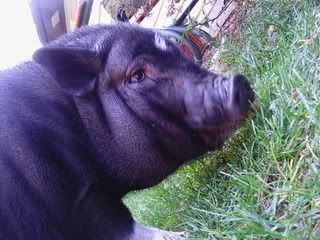
Blog: PV Lundqvist (Login to Add to MyJacketFlap)
JacketFlap tags: marketing, first post, author platform, selling, Add a tag
Coming at this topic as a newbie, trying to learn, I was surprised at how many writers don't use a platform, or worse, flub it. I mean, it's writing. Blogs, tweeting, messaging. All words. We're supposed to be good at that, right? Yet some good authors are failing—how could I possibly succeed?
Well, I think writers are good with words. Some just don't know how to shift gears from telling their characters' stories and getting their own out. In other words, switching from narrating to marketing—that I'm trying to learn. So here are three tenets I've picked up (from others) about using the internet to connect with readers. Feel free to share your own.
The Three Be's
1) Be useful
What does your readership care about? For me, as a middle grade writer, it is important to address subjects that parents (who buy books) and kids (who read the books) want to know about. As a father myself, I can leverage my experience addressing issues that parents and kids deal with at this 'in between' stage. Topics such as family pets, competing in sports, and the awkwardness of going from kid to adult. My novel is about all three.
2) Be entertaining
A writer is a story teller, right? Tell one! Be funny, save the best bit for last, you know the drill. Would you have your protagonist discuss grocery lists or backed up toilets in your novel? No. Readers are not your friends, they are your clientele. Consumers of what you write, they aren't here to listen to a writer's complaints. That's exhausting. That's for your personal, super-secret blog that nobody reads but your mother.
3) Be real
You wouldn't immediately upon hearing a coworker's story about her nine-year-old's birthday party say, "That reminds me of my vampire novel, 'Suckers on the Loose!' Let me tell you about it." Um, no. That would be weird. But I see that all the time appended to blog posts. Good salespeople connect personally with their customers. Listen to them, hear what they have to say, and give them what they want. You are establishing a life-long reader relationship here. Not selling a rusted-out hooptie and leaving town on the first Greyhound.
I've done sales before. Hated it. Yet, like going to the gym, it made me a better person. A stronger person. I will readily admit, however, I sold more when I believed in what I was selling.
Why write if you don't believe in your own book?
Three People To Be Like
April Hamilton is a dynamo of an author-as-entreprenuer whose ideas can work for self pub and traditionally pubbed authors. After reading her inspirational posts, I was moved to 'try it again' myself.
John August is primarily a screen writer, but his site is a model of usefulness with a depth of reference material unmatched. Recently he self-pubbed a short story on the Kindle that has been a terrific lesson in how one can use a new distribution system for your writing. From contests, to an insider's view of the industry, his site is fun.
JA Konrath is the hardest working writer on the 'net. When he's not writing a novel, he's experimenting with sales on the Kindle, judging writing contests, and visiting scores of bookstores. Then he blogs about it. Whew!
So why platform? Well, if you can't draw readers to your blog, what makes you think you can get them to buy your book? Or get a publisher to take you on? Think of it as authorship-in-training. I know I do.


